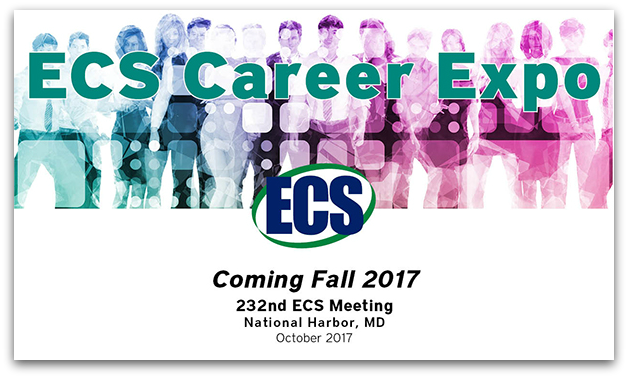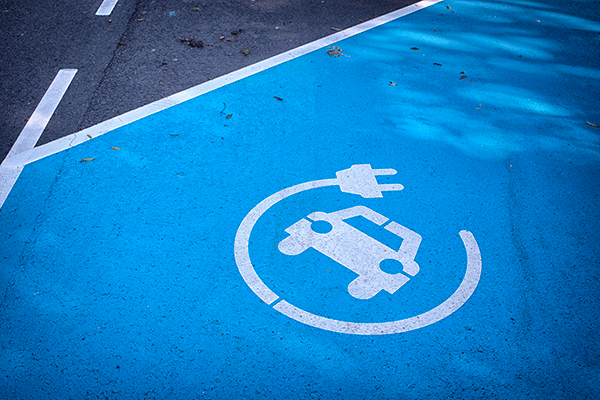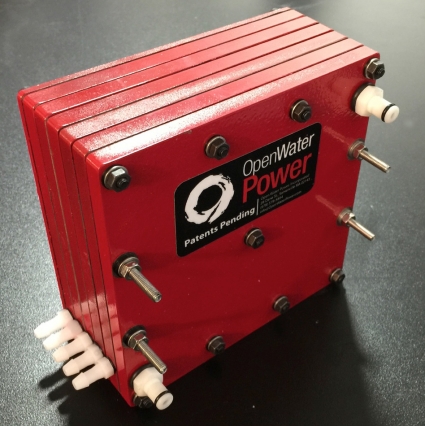By: Josh Billy, The Ohio State University
 The 232nd ECS Meeting will be featuring several new events, including the ECS Career Expo. As a PhD candidate moving ever-closer to defending my thesis, I couldn’t be more excited for this new addition.
The 232nd ECS Meeting will be featuring several new events, including the ECS Career Expo. As a PhD candidate moving ever-closer to defending my thesis, I couldn’t be more excited for this new addition.
I have been to three ECS biannual meetings and several local chapter events as a graduate student. I’ve used meetings to share my work, learn about a lot of interesting research from other groups, and perhaps most importantly, network. Meeting fellow electrochemists, especially those working on projects related to mine, is difficult to do anywhere other than ECS meetings. In a similar way, I’ve struggled to come across electrochemistry positions during my job search.
Because it’s always important to think ahead, I used the sponsor exhibits at previous meetings as a makeshift career fair. In Hawaii last year, I made my way around the booths and spoke to exhibitors while trying to get a feel for what types of jobs they might have available. The problem with the sponsor exhibit, however, is that the job types are limited; companies with sponsor exhibits are mostly (this is not always the case) making products that researchers use rather than for general consumers. The truth is that there are many more companies with electrochemistry positions available not previously represented at ECS meetings. The new ECS Career Expo will hopefully change that.


 On June 21, publishing giant Elsevier won a legal judgement against websites like Sci-Hub, which illicitly offer access to over 60 million academic articles. The court ruled in Elsevier’s favor, awarding the publisher $15 million in damages for copyright infringement.
On June 21, publishing giant Elsevier won a legal judgement against websites like Sci-Hub, which illicitly offer access to over 60 million academic articles. The court ruled in Elsevier’s favor, awarding the publisher $15 million in damages for copyright infringement. Using energy stored in the batteries of electric vehicles to power large buildings not only provides electricity for the building, but also increases the lifespan of the vehicle batteries, new research shows.
Using energy stored in the batteries of electric vehicles to power large buildings not only provides electricity for the building, but also increases the lifespan of the vehicle batteries, new research shows. A new development in electrolyte chemistry, led by ECS member
A new development in electrolyte chemistry, led by ECS member  The
The 
 Researchers have developed a new kind of semiconductor alloy capable of capturing the near-infrared light located on the edge of the visible light spectrum.
Researchers have developed a new kind of semiconductor alloy capable of capturing the near-infrared light located on the edge of the visible light spectrum.